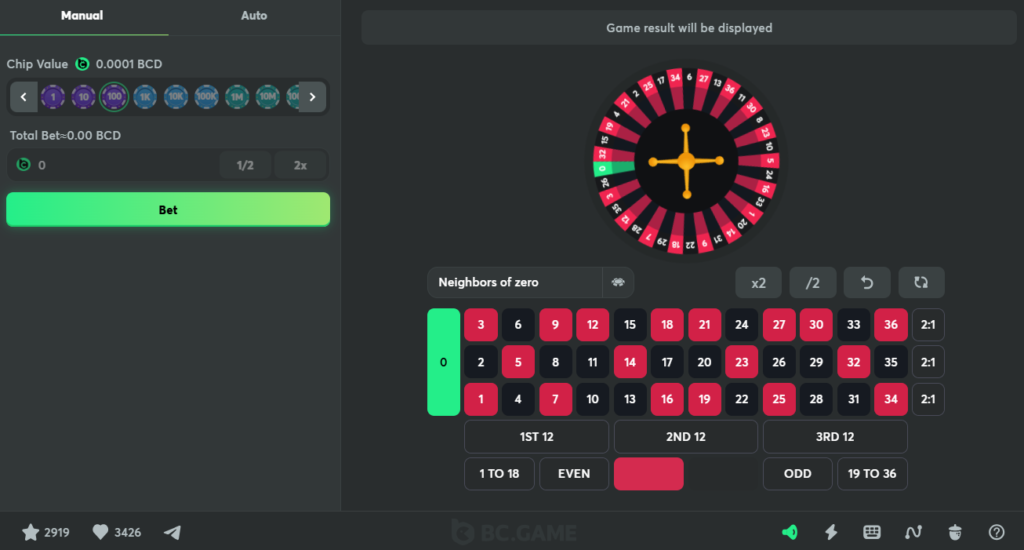Game Description
Roulette is a game that combines chance and strategy, where players place bets on where a small ball will land on a circular wheel divided into numbered pockets. The objective is straightforward: predict the winning number or color where the ball will come to rest. With various betting options available, players can tailor their risk levels and potential payouts.

How to Play
- Placing Bets: The game starts with players placing their bets on the Roulette table. The available betting options include:
- Inside Bets: These are bets placed on specific numbers or small groups of numbers. They offer higher payouts but come with greater risk.
- Outside Bets: These bets cover broader categories, such as red or black, odd or even, and high (19-36) or low (1-18). These generally have lower payouts but increase the chances of winning.
- Spinning the Wheel: Once all bets are placed, the dealer spins the Roulette wheel in one direction and releases the ball in the opposite direction. The anticipation builds as players wait to see where the ball will land.
- Determining Winners: After the ball comes to a stop in one of the numbered pockets, the winning number and color are announced. Players who placed bets on the winning outcome receive their payouts according to the odds associated with their bet.
Types of Roulette
There are several popular variations of Roulette, including:
- American Roulette: This version features a wheel with 38 pockets (numbers 1-36, 0, and 00). The presence of the double zero increases the house edge, making it less favorable for players.
- European Roulette: With only 37 pockets (numbers 1-36 and a single 0), European Roulette has a lower house edge compared to its American counterpart.
- French Roulette: Similar to European Roulette, this variant includes additional rules such as "La Partage" and "En Prison," which can enhance the odds for players.
Strategies for Playing
While Roulette is primarily a game of chance, players can adopt certain strategies to improve their gameplay experience:
- Martingale Strategy: This popular betting system involves doubling your bet after each loss, with the idea that a win will eventually cover all previous losses. However, it requires a substantial bankroll and comes with significant risks.
- Fibonacci Strategy: Based on the Fibonacci sequence, players increase their bets according to the sequence after a loss. This strategy allows for a gradual increase in bets but may result in less frequent wins.
- Flat Betting: Players choose to bet the same amount on each spin, regardless of previous wins or losses. This approach helps manage the bankroll and reduces the risk of significant losses.

Advantages of Roulette
- Variety of Betting Options: Roulette offers a wide range of betting choices, allowing players to customize their risk levels and potential payouts based on their preferences.
- Social Interaction: The lively atmosphere at a Roulette table encourages social engagement among players, making it a fun and interactive experience.
- Ease of Understanding: The rules of Roulette are straightforward, making it accessible to both novice and experienced players.
- Exciting Gameplay: The thrill of watching the wheel spin and waiting for the ball to land creates an electrifying gaming experience.
Roulette is an exhilarating game that combines chance with strategic betting. Its iconic wheel, diverse betting options, and the thrill of anticipation make it a timeless favorite in casinos around the globe, including BC.Game. If you're looking for a game that delivers both entertainment and the potential for significant winnings, Roulette is an excellent choice. Play responsibly, explore different betting strategies, and enjoy the excitement of the game!





